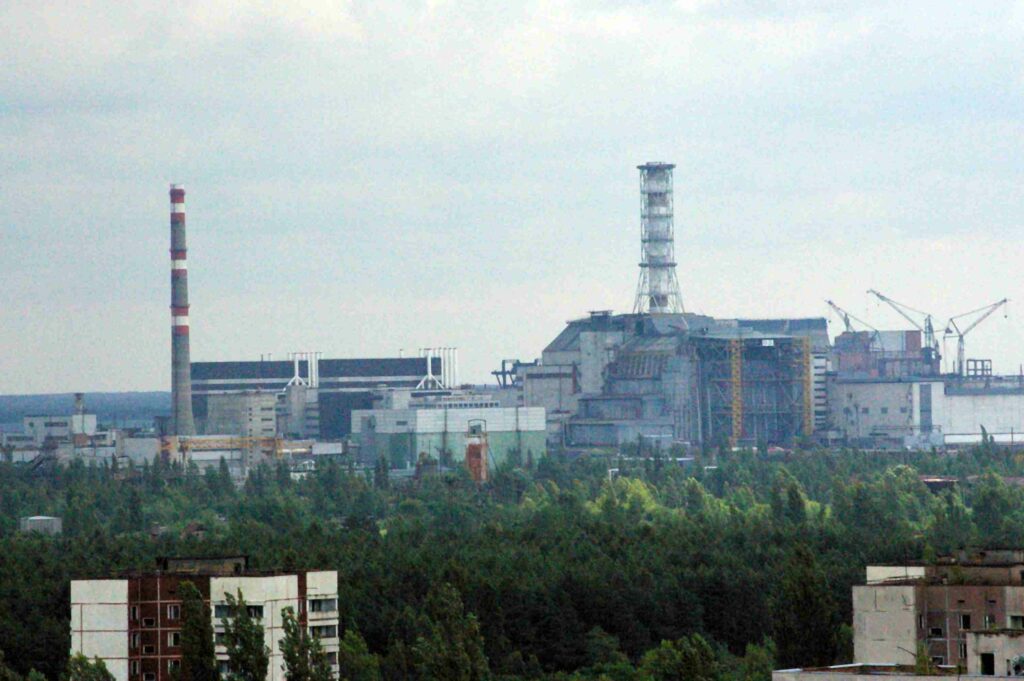37 years since the world's most serious nuclear accident took place in Chernobyl, Ukraine, the likelihood of another disaster still looms over the country.
Former workers at the Chernobyl nuclear power plant gathered on Tuesday at the memorial in the city of Slavutych to hold a candlelight vigil in memory of the disaster's victims.
"For 30 years now, every night on April 26 we come here and lay flowers. I know everyone here. It was my shift at the power plant," survivor Serhii Akulinin told ANC24. "This (nuclear disaster) is a second war for us... it was a similar situation to February 24 (when Russia invaded Ukraine). I had the experience of war so I took my grandchildren to a safe place."
Former workers held a candlelight vigil at the Chernobyl power plant to mark 37 years of the world’s worst nuclear disaster which brought death, misery and radioactive contamination to a swathe of Eastern Europe pic.twitter.com/hgV6Anb2SM
— Reuters (@Reuters) April 26, 2023
The Chernobyl Commemoration Day again finds Ukraine embroiled in a war; since the start of the Russian invasion more than 400 days ago the threat of a nuclear incident in one of the country's 15 nuclear power plants has been present.
Russian forces currently occupy the Zaporizhzhia nuclear power plant in Southeastern Ukraine. Despite constant appeals for demilitarization from the International Atomic Energy Agency (IAEA), attacks in the region occur daily, Euronews reports. A former IAEA deputy director-general believes the nuclear threat is more pressing today than in 1986.
"This situation is in some ways worse, because it is an intentional, man-made attack, and it is very difficult to protect a nuclear power plant if munitions or missiles hit the wrong place," Olli Heinonen told Euronews.
Overlooking past errors?
On 26 April 1986, an explosion at the Chernobyl nuclear power plant spread contamination over large parts of present-day Ukraine, Belarus and Russia, exposing 8.4 million people to nuclear radiation. 31 people died in the blast.
Effects on human health included radiation sickness, higher rates of leukaemia, thyroid cancer and more. In a late response, the Soviet Union (which was occupying Ukraine at the time) relocated millions of people, tearing apart communities and creating a social stigma around former residents.
A series of environmental impacts followed the explosion, including water contamination which flows into neighbouring countries and physiological anomalies in animals.
Related News
- 'Involve the people': Belgian citizens to debate disposal of radioactive waste
- Russia tests 'advanced' intercontinental ballistic missile
- 'The cleanest-ever electricity': Global electricity from wind and solar at all-time high
"The silence and lies of the Soviet totalitarian regime about the tragedy led to terrible consequences that went far beyond the borders of contemporary Ukraine," Ukrainian Prime Minister Denys Shmyhal wrote on the commemoration of the event.
"Today, Russia's barbaric attacks near the nuclear facilities of Ukraine, the occupation of the Zaporizhzhia nuclear power plant and its transformation into a military base put the world at risk of a new disaster."

